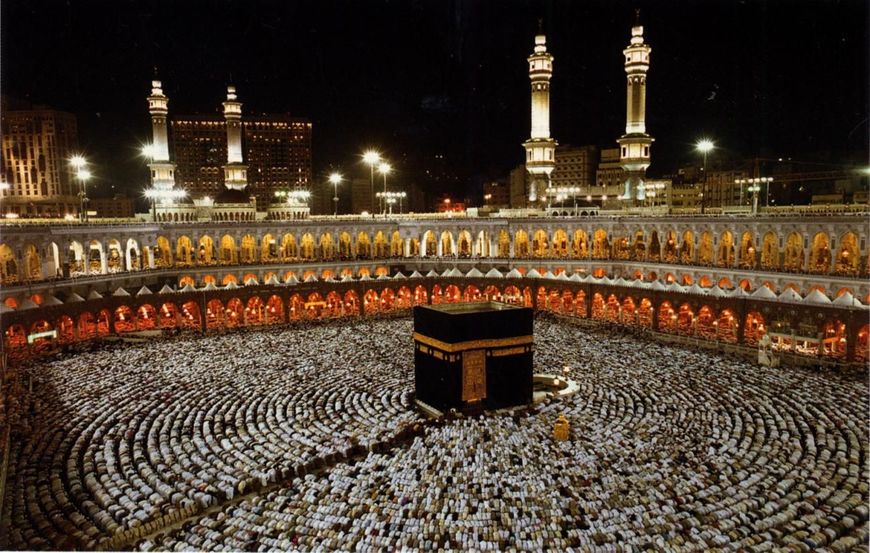Hajj: A Journey of Faith and Devotion in Islam
Hajj, one of the Five Pillars of Islam, is a profound spiritual journey that holds immense significance for Muslims worldwide. This annual pilgrimage to the holy city of Mecca is not just a physical act but a deeply transformative experience that embodies devotion, unity, and obedience to Allah.
For those seeking to understand the essence of Hajj, its rituals, and its impact on a believer’s life, this article delves into the sacred traditions and spiritual significance of the pilgrimage. To learn more, visit Hajj: The Pilgrimage in Islam.
The Spiritual Importance of Hajj
Hajj is not merely a religious obligation; it is an act of worship that fosters a closer relationship with Allah. By performing Hajj, Muslims demonstrate their faith, humility, and willingness to sacrifice worldly comforts for the sake of spiritual growth.
Key Spiritual Lessons of Hajj:
- Equality: Hajj unites Muslims of all races, nationalities, and social statuses, emphasizing the concept of universal equality before Allah.
- Repentance: Pilgrims seek forgiveness for their sins, symbolizing a fresh start and renewed commitment to living a righteous life.
- Submission: By completing the rituals, Muslims reaffirm their submission to Allah’s will.
The Rituals of Hajj
The pilgrimage consists of several rituals, each with its own symbolic meaning. Here’s a step-by-step overview:
1. Ihram (State of Purity):
Before entering Mecca, pilgrims don simple white garments to signify purity and equality. This state of ihram also includes specific behavioral guidelines, such as refraining from arguments and maintaining a state of mindfulness.
2. Tawaf (Circumambulation):
Pilgrims circle the Kaaba, Islam’s holiest site, seven times in a counterclockwise direction. This act symbolizes the unity of believers around Allah.
3. Sa’i (Walking Between Safa and Marwah):
Pilgrims walk back and forth between the hills of Safa and Marwah to commemorate Hagar’s search for water for her son, Ishmael.
4. Standing at Arafat (Wuquf):
The most significant ritual, standing at Arafat, involves a day of prayer, reflection, and supplication. Pilgrims seek forgiveness and blessings from Allah.
5. Muzdalifah and Collecting Pebbles:
Pilgrims spend the night in Muzdalifah, where they collect pebbles for the next ritual.
6. Stoning of the Devil (Ramy al-Jamarat):
At Mina, pilgrims throw pebbles at three stone pillars, symbolizing the rejection of evil and temptation.
7. Sacrifice (Qurbani):
Pilgrims offer an animal sacrifice, commemorating Prophet Ibrahim’s willingness to sacrifice his son in obedience to Allah.
8. Tawaf al-Ifadah:
After completing the sacrifice, pilgrims return to Mecca for another Tawaf, marking the culmination of the Hajj rituals.
The Historical and Religious Context of Hajj
Hajj dates back to the time of Prophet Ibrahim (Abraham), who built the Kaaba with his son Ishmael as a house dedicated to the worship of Allah. The pilgrimage rituals are rooted in the actions and sacrifices of Prophet Ibrahim, his wife Hagar, and their son Ishmael, making Hajj a re-enactment of their devotion and trials.
The Impact of Hajj on a Muslim’s Life
For many, Hajj is a once-in-a-lifetime journey that leaves a lasting impact. Pilgrims return with a renewed sense of purpose, strengthened faith, and a deeper connection to their community.
Key Benefits of Hajj:
- Spiritual Cleansing: A chance to repent and start anew.
- Unity and Brotherhood: Connecting with Muslims from around the world.
- Personal Growth: Learning patience, humility, and gratitude.
Modern-Day Challenges and Opportunities
While Hajj remains a deeply spiritual experience, modern advancements have transformed the pilgrimage. Improved infrastructure, technology, and safety measures make it more accessible, though challenges like crowd management and rising costs persist.
Plan Your Hajj Journey
Preparing for Hajj involves both spiritual and practical steps. Here are some tips:
- Educate Yourself: Learn the rituals and their significance.
- Physical Preparation: Build stamina for the physically demanding journey.
- Financial Planning: Save and plan for the costs associated with travel, accommodation, and fees.
- Spiritual Readiness: Seek forgiveness and strengthen your relationship with Allah.
Hajj is more than a religious duty; it’s a transformative experience that strengthens faith, promotes unity, and fosters personal growth. By performing Hajj, Muslims fulfill a divine commandment while connecting with the rich history and traditions of Islam.
Whether you’re planning your pilgrimage or simply want to understand its profound significance, exploring the essence of Hajj offers valuable insights into the spiritual journey that millions undertake every year.